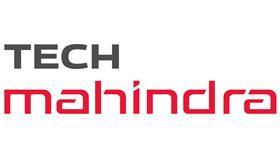Tech Mahindra champions NHS digital transformation, highlighting innovations and potential in healthcare technology, writes Jinender Jain
I welcomed the recent announcement of the NHS’s £3.4bn investment in digital transformation, an important step forward in healthcare innovation. The funding aims to use data and artificial intelligence to simplify administrative processes, improve patient care, and transform service delivery. As the NHS undergoes this transformative shift, it’s essential to recognise the pioneering individuals and teams driving this change.
Sponsored by
Tech Mahindra is delighted to be the headline sponsor of HSJ Digital Awards 2024. The awards serve as a testament to the groundbreaking potential of digital solutions within healthcare and spotlight the remarkable achievements of those individuals and teams leveraging technology to improve patient care. I’ve been deeply impressed by the quality and breadth of award submissions, demonstrating that the NHS is leading innovation.
A cornerstone of the NHS is equity, providing universal access to medical care regardless of financial means and affirming the belief that healthcare is a fundamental human right. A poll into public perceptions of healthcare to commemorate the NHS’s 75th birthday found that 54 per cent of the public said this is what makes them most proud to be British, higher than our history (32 per cent), our culture (26 per cent), or our system of democracy (25 per cent). Something to be justly proud of. It’s true there remain challenges ahead but also great opportunities.
Technology will complement the expertise, talents, and people that are the backbone of the UK healthcare system, making it even stronger for future generations
Digital healthcare globally saw rapid growth during the covid-19 pandemic. Born out of necessity, virtual appointments became widespread, enabling remote consultations and reducing the need for in-person visits. The NHS covid-19 screening app was also developed, aiding in contact tracing, and providing users with vital real-time information. These innovations helped maintain healthcare access and control virus spread.
At Tech Mahindra, we embrace this era of accelerated change with enthusiasm and commitment. Our integrated solutions aim to address critical healthcare challenges and drive meaningful transformation. From optimising operations through AI-led command centre operations to bridging gaps in care delivery with telemedicine, we’re focused on meeting the evolving needs of healthcare providers and patients.
We’re excited by the advanced digital technologies reshaping pharmacovigilance processes. AI could play a pivotal role in extracting, understanding, and analysing data from diverse sources such as images, lab reports, and narratives. This AI-driven analysis expedites medical reviews and enhances adverse drug reaction detection through contextually aware models, deep learning algorithms, and, of course, expert human oversight.
Natural Language Processing systems could further augment PV efforts by identifying potential adverse drug events from various textual sources. NLP aids medical reviewers by providing insights gleaned from the latest medical literature, enabling a more comprehensive and informed approach to PV.
Big data analytics shows immense promise as another avenue for enhancing drug safety and efficacy. By analysing large amounts of data, clinicians can identify correlations between drug components and adverse reactions. This data-driven approach reduces the reliance on traditional clinical trial methods, leading to more cost-effective and efficient pharmacovigilance practices. NHS England has made great strides in this area with their Data Saves Lives initiative, which aims to build public trust and establish modern data systems that are fit for purpose.
Automation tools could transform processes, streamlining tasks like case entry, processing, and quality checks. By automating these administrative and clerical tasks, organisations can increase work efficiency, reduce operational costs, improve the accuracy and quality of ADR detection and free up space for innovation.
Cloud technology will support many of these advancements, providing scalable storage solutions and facilitating real-time data access and collaboration. Enabling seamless processing and transfer of large volumes of medical data will foster transparency and collaboration. Of course, security, data protection and patient anonymity will be critical to successful embedding.
As we celebrate the achievements of NHS pioneers at the HSJ Digital Awards, we acknowledge the transformative potential of technology in healthcare. These digital innovations hold immense promise to improve drug safety, accelerate signal detection, and ultimately enhance patient outcomes. Technology will complement the expertise, talents, and people that are the backbone of the UK healthcare system, making it even stronger for future generations.
I look forward to celebrating with all those attending the awards and, of course, the inspirational finalists in June.


























